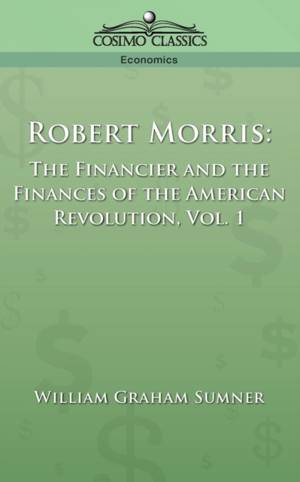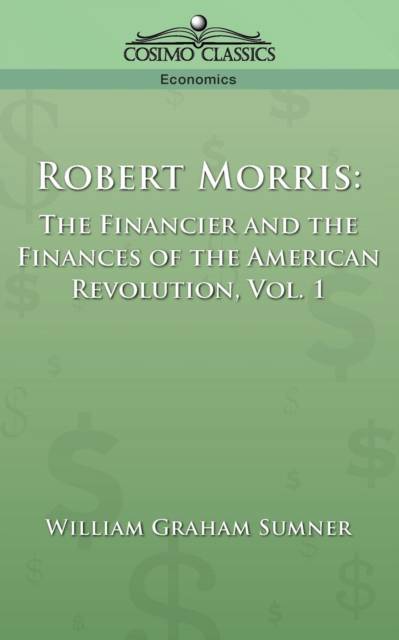
Bedankt voor het vertrouwen het afgelopen jaar! Om jou te bedanken bieden we GRATIS verzending (in België) aan op alles gedurende de hele maand januari.
- Afhalen na 1 uur in een winkel met voorraad
- In januari gratis thuislevering in België
- Ruim aanbod met 7 miljoen producten
Bedankt voor het vertrouwen het afgelopen jaar! Om jou te bedanken bieden we GRATIS verzending (in België) aan op alles gedurende de hele maand januari.
- Afhalen na 1 uur in een winkel met voorraad
- In januari gratis thuislevering in België
- Ruim aanbod met 7 miljoen producten
Zoeken
Robert Morris
The Financier and the Finances of the American Revolution, Vol. 1
William Graham Sumner
Paperback | Engels
€ 33,95
+ 67 punten
Uitvoering
Omschrijving
Robert Morris' tombstone states that he was "The Financier"; officially, however, he was Superintendent of Finance. Whatever his title, Robert Morris played an integral role in financing the American Revolution, and Yale Professor William G. Sumner examines Morris' life and actions to enhance our understanding of the finances of the young nation. In Volume I of a two-volume work, Sumner looks at the early life of Morris and his first years in public service through 1781. Born in Philadelphia, Morris was forty-one at the time of the Revolution and one of the wealthiest merchants in the colonies. Sumner notes, "His career as a public man then began. He took part in all the great enterprises of the United States which were not military, and he was not without influence on those." He had to organize the treasury and somehow make sure that soldiers were paid, the army was provided for, and creditors were appeased. The volume ends with the events of 1781, with Morris appointed the Financier during a tense era in our nation's history. WILLIAM GRAHAM SUMNER was a professor of political and social science at Yale University and became known as a Social Darwinist and advocate of the laissez faire principle in economics. Besides writing a number of books on sociology, history, and economics, he was also influential in the movement to modernize the American university system.
Specificaties
Betrokkenen
- Auteur(s):
- Uitgeverij:
Inhoud
- Aantal bladzijden:
- 320
- Taal:
- Engels
Eigenschappen
- Productcode (EAN):
- 9781596050822
- Verschijningsdatum:
- 1/01/2013
- Uitvoering:
- Paperback
- Formaat:
- Trade paperback (VS)
- Afmetingen:
- 127 mm x 203 mm
- Gewicht:
- 349 g

Alleen bij Standaard Boekhandel
+ 67 punten op je klantenkaart van Standaard Boekhandel
Beoordelingen
We publiceren alleen reviews die voldoen aan de voorwaarden voor reviews. Bekijk onze voorwaarden voor reviews.









